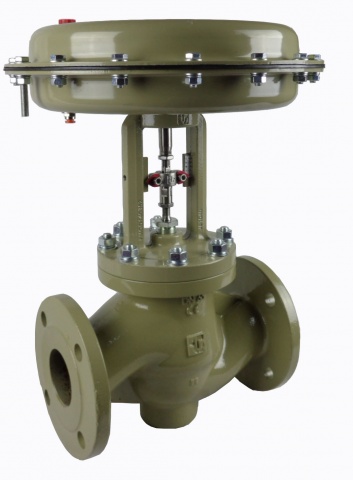Control valves play a central role in the efficient management of fluid dynamics across industrial pipelines. These devices regulate flow, pressure, and temperature, ensuring consistent performance and system stability. Whether transporting liquids, gases, or steam, control valves are vital in maintaining operational safety and process accuracy. Their precision and responsiveness allow industries to meet strict quality, efficiency, and safety standards. From chemical plants to water treatment facilities, control valves contribute to overall system optimization by enabling better control over fluid movement. Their benefits are extensive and directly influence the reliability and productivity of industrial systems.
Precise Flow Regulation
Control valves maintain a steady flow rate, which is critical for consistent production output.
- Ensures the exact amount of fluid passes through the system
- Prevents fluctuations that could affect quality or safety
- Supports uniformity in batch processes
Pressure Control and Stability
High or low pressure can disrupt industrial operations. Vincer control valves help maintain ideal pressure levels throughout the pipeline.

- Avoids pressure surges and drops
- Protects sensitive equipment from damage
- Enhances system stability and performance
Temperature Management
In processes where temperature affects outcomes, control valves assist by adjusting flow to maintain desired heat levels.
- Regulates temperature by controlling heating or cooling fluids
- Improves product quality in thermal-sensitive operations
- Reduces energy waste
Operational Safety
Control valves are critical for preventing unsafe conditions caused by fluid imbalances or leaks and control valve should always be in what position.
- Responds quickly to system changes or failures
- Minimizes the risk of accidents due to overpressure or overflow
- Enables emergency shut-off in critical systems
Energy Efficiency and Cost Reduction
Accurate control reduces overuse of fluids and energy, lowering operational expenses.
- Limits unnecessary energy consumption
- Reduces fluid waste and maintenance frequency
- Supports sustainable practices in large-scale operations
Remote Monitoring and Automation Integration
Modern control valves support smart technologies, allowing remote operation and integration into automated systems.
- Offers real-time monitoring and diagnostics
- Enables predictive maintenance and system alerts
- Reduces manual intervention, improving safety and efficiency
Versatility Across Applications
Control valves are used across multiple industries, including oil and gas, water treatment, chemical processing, and power generation.
- Customizable to meet specific flow and pressure requirements
- Works with a variety of fluids and gases
- Easily adapted to changing operational needs
Control valves are indispensable tools in managing fluid dynamics across industrial pipelines. Their ability to regulate flow, pressure, and temperature ensures smoother, safer, and more efficient processes. With benefits ranging from improved safety to cost reduction and automation compatibility, control valves offer a practical solution to many challenges faced in industrial fluid management. Their role in enhancing system performance while supporting sustainability goals makes them a valuable component in modern infrastructure. Investing in quality control valves leads to long-term gains in productivity, reliability, and operational control.
